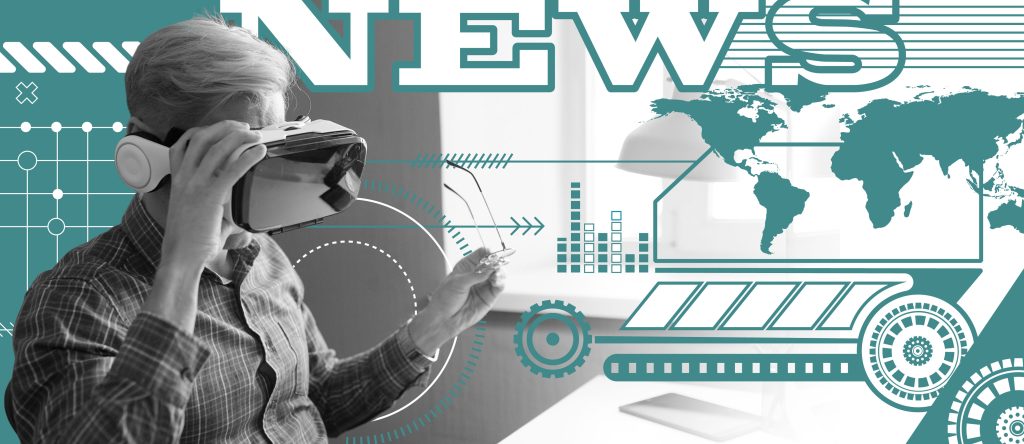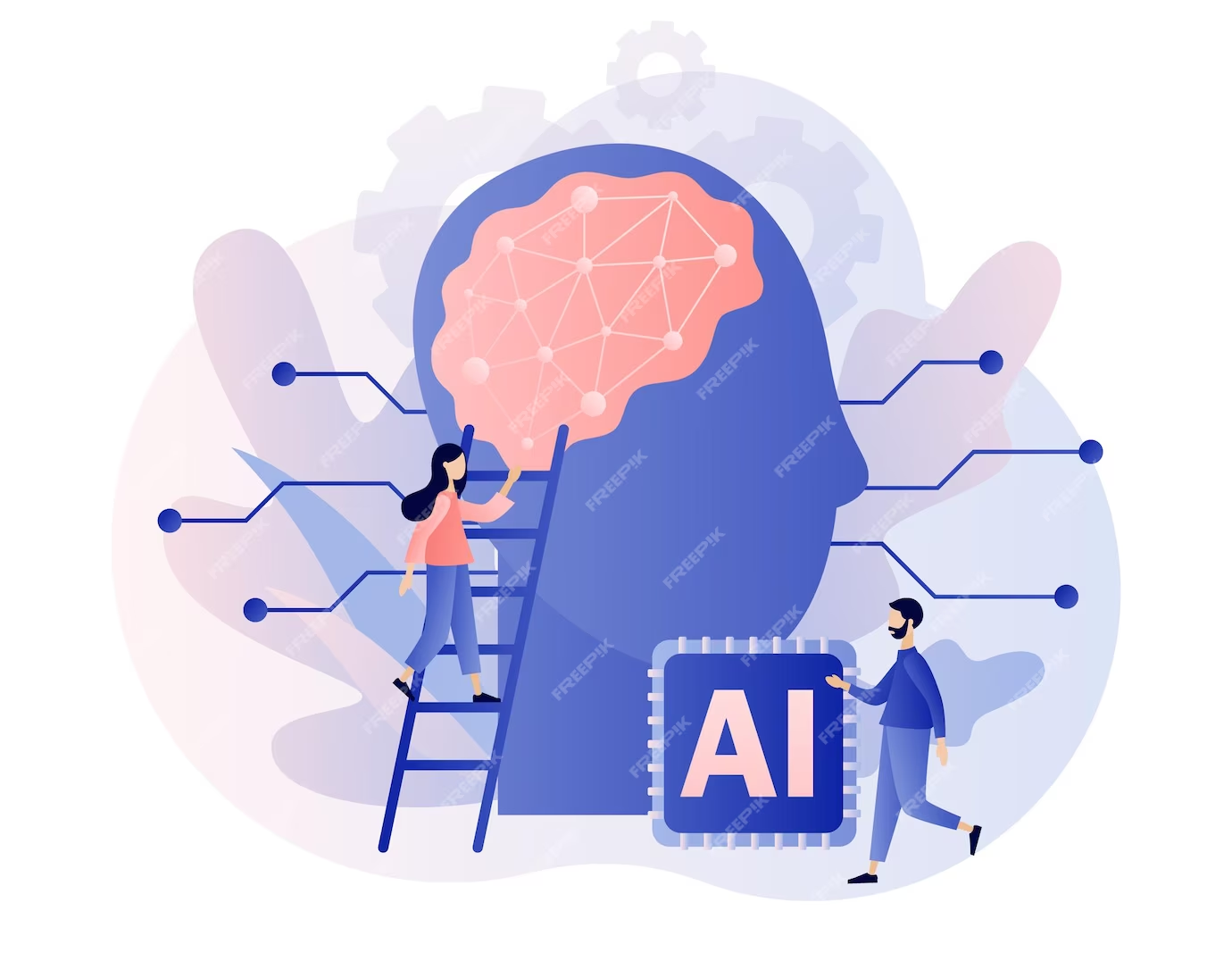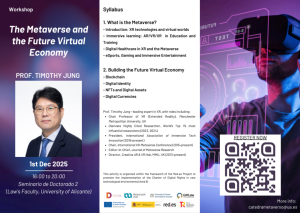
The MetaverseUA Chair Newsletter #10 - May 2024
Hey there, Metaversian friends!
Welcome back to our virtual corner, where we present you the latest news regarding the legal and ethical aspects of the Metaverse and closely connected topics!
Advancing Healthcare with Virtual Human Twins: European Commission calls for proposals

Virtual Human Twins are the cutting-edge application of digital twin technology that enables the digital representation of different parts of the human body, from a microscopic level up to entire organ systems. Virtual human twins are constructed using software models and data to replicate and anticipate the behavior of real individuals and how their organism interacts with potential diseases.
On the third of May, the European Commission published a call for tenders for the Platform for Advanced Virtual Human Twin Models as a main part of the European Virtual Twins Initiative. The Initiative aims to advance precision medicine, drug development, and scientific research in the European Union through virtual twins.
As an integral part of the Initiative and the program “shaping Europe’s digital future”, the Virtual Human Twins Platform specifically aims to advance personalized health care by leveraging supercomputing and AI to facilitate collaboration among researchers, healthcare providers, and industry partners. Digital Twin Technology is developing rapidly and gaining recognition globally, leading to an estimated market growth of over 60%, but at the moment it is rather scattered across Europe. The initiative will connect stakeholders throughout Europe to leverage the fragmentation of the EU´s virtual twins ecosystem as well as sustain and advance science and technology in the European Union through collaborative research and innovation. Also, the platform seeks to accelerate virtual twin model development and support large-scale AI training for personalized healthcare applications, fostering innovation and collaboration across academia, industry, and SMEs to advance personalized healthcare in Europe.
Stay updated on the latest news regarding the Virtual Human Twins Platform and other groundbreaking advancements in the world of digital twins!
The European Commission has finally published eIDAS 2.0 Regulation, introducing the digital ID and personal digital wallet

In June 2021 the European Commission published the proposal for amending the Regulation eIDAS 1.0 (Regulation (EU) No 910/2014). The main goal of the proposed update is not a replacement but further development of eIDAS 1.0 in the context of decentralization and the upcoming Self-Sovereign Identity (SSI) paradigm. Now, finally, after years of waiting, these amendments have been published in the EU’s Official Journal and will enter into force next May 20th.
The eIDAS 1.0 introduced the first cross-border framework for trusted digital identities and trust services, providing secure electronic interactions between citizens, business and public authorities. It sought to give EU citizens access to public services across the EU using electronic identification issued in their home country and recognised mutually by other Member States.
The eIDAS 2.0 enables and enhances features like electronic ID, electronic signatures, electronic seals, time stamping, registered electronic delivery, and website authentication. Furthermore, this regulation aims to enable the use of electronic identification means and trust services by citizens, businesses, and public administrations to access online services or manage electronic transactions in compliance with the GDPR and Cybersecurity standards of the European Union. It provides a widely useable way of identification or to confirm certain personal attributes for access to public and private digital services across the EU. These includes virtual worlds platforms. And most importantly, it´s giving full control to users to choose which aspects of their identity (avatars), data, and certificates they share with third parties, and keep track of such sharing.
The most significant consequence that eIDAS 2.0 could have in the metaverse is mainly due to the use of the Digital Wallet. Through this tool, the user can have actual control over all the elements that identify them, deciding which of these elements to reveal in a specific situation and which to keep private. Furthermore, the use of a unified identification system throughout the European area allows for the use of the same identity (i.e. the same avatar) within different virtual worlds.
Furthermore, within the Metaverse, the European Digital Identity Wallet could become a critical tool to facilitate:
- Secure digital identification: Enabling users to assert their identity with security and privacy.
- Unified access across virtual environments: Ensuring seamless transitions especially between VLOP-powered platforms, encouraging an integrated ecosystem.
- Enhanced user control: Providing features such as pseudonymous interaction and transaction monitoring through a dashboard, empowering users to monitor the use of their data in their digital interactions.
- Zero knowledge proof technology: With this cryptographic method, a relying party can validate whether a given statement of a European Digital Identity Wallet user is true, without revealing any data on which the statement is based, thus, preserving the user’s privacy.
In the long run, DLT and Digital Wallets will help in building an interoperable Metaverse, but it is still a work in progress!
OpenAI faces Controversies about GDPR Compliance

Finally, the AI Act was formally adopted by the European Parliament in March 2024. However, not all legal complexities are immediately resolved and especially those concerning the interpretation and adaptation of existing legal frameworks to AI technology stay uncertain, as the last weeks continued to show:
NOYB, an Austrian non-profit founded by Data-Privacy activist and lawyer Max Schrems, has lodged a complaint with the Austrian data privacy authority, accusing OpenAI of breaching the EU’s General Data Protection Regulation (GDPR) by failing to rectify inaccurate personal information supplied by ChatGPT.
The Complaint focuses on so-called “hallucinations”, which are wrong answers provided by the Generative-AI System. NOYB claims that OpenAI violated multiple rights of the data subject enshrined in the GDPR by letting ChatGPT provide wrong Information and not rectifying it. Further, ChatGPT did not offer sufficient access to the data processed about an individual after a request conducted in December 2023 and refused to carry out the requested erasure. This was justified by the argument that the selective correction of hallucinations is technically impossible, the model can only be hindered from giving an answer in the last output stage instead of correcting its content. Therefore, the incorrect data still gets processed, just not published. Moreover, OpenAI claims blocking incorrect data would lead to over-blocking, as it is technically impossible not to affect other correct pieces of information that ChatGPT would display about the data subject and therefore infringe the general right of the public to be informed.
Concluding, Maartje de Graaf, noyb’s data protection lawyer, stated that «It’s clear that companies are currently unable to make chatbots like ChatGPT comply with EU law when processing data about individuals» but «if a system cannot produce accurate and transparent results, it cannot be used to generate data about individuals. The technology has to follow the legal requirements, not the other way around,» she commented.
Next-Generation Hardware: Innovative Smart Devices bring us a step closer to a fully immersive Metaverse Experience

On the 24th of April, META and RayBan launched their next generation of smart glasses with new styles and enhanced features. The new glasses will enable you to share your views over video calls in Whatsapp and Messenger, adding a new perspective to interactions with others and making it possible sharing your experiences in a more personal way. Additionally, the glasses will be introduced to Meta AI with Vision, integrating AI technology into the smart devices that allows users to interact with them and receive information about their surroundings through voice commands, without the need to use their hands. These next generation glasses are another example of hardware more suitable for everyday use, leading up to optimized Augmented Reality (AR) Experiences where Smart glasses will be able to overlay information or virtual objects onto the user’s real-world view. Even though this vision is not realized yet, Meta is still working on its Project Nazare, promising the first fully augmented reality glasses instead of headsets with a high field of view immersion, surpassing existing products on the market.
And as we bid our farewells, remember that we have already published the final program for our forthcoming International Congress “Towards a Responsible Development of the Metaverse”, to be held on 13-14th June. If you want to attend this magnificent gathering of metaversian experts from all over the world, don’t hesitate to register here. And remember, food’s on us!
This newsletter was kindly prepared by Megan Kalleja, a collaborator of the MetaverseUA Chair.





